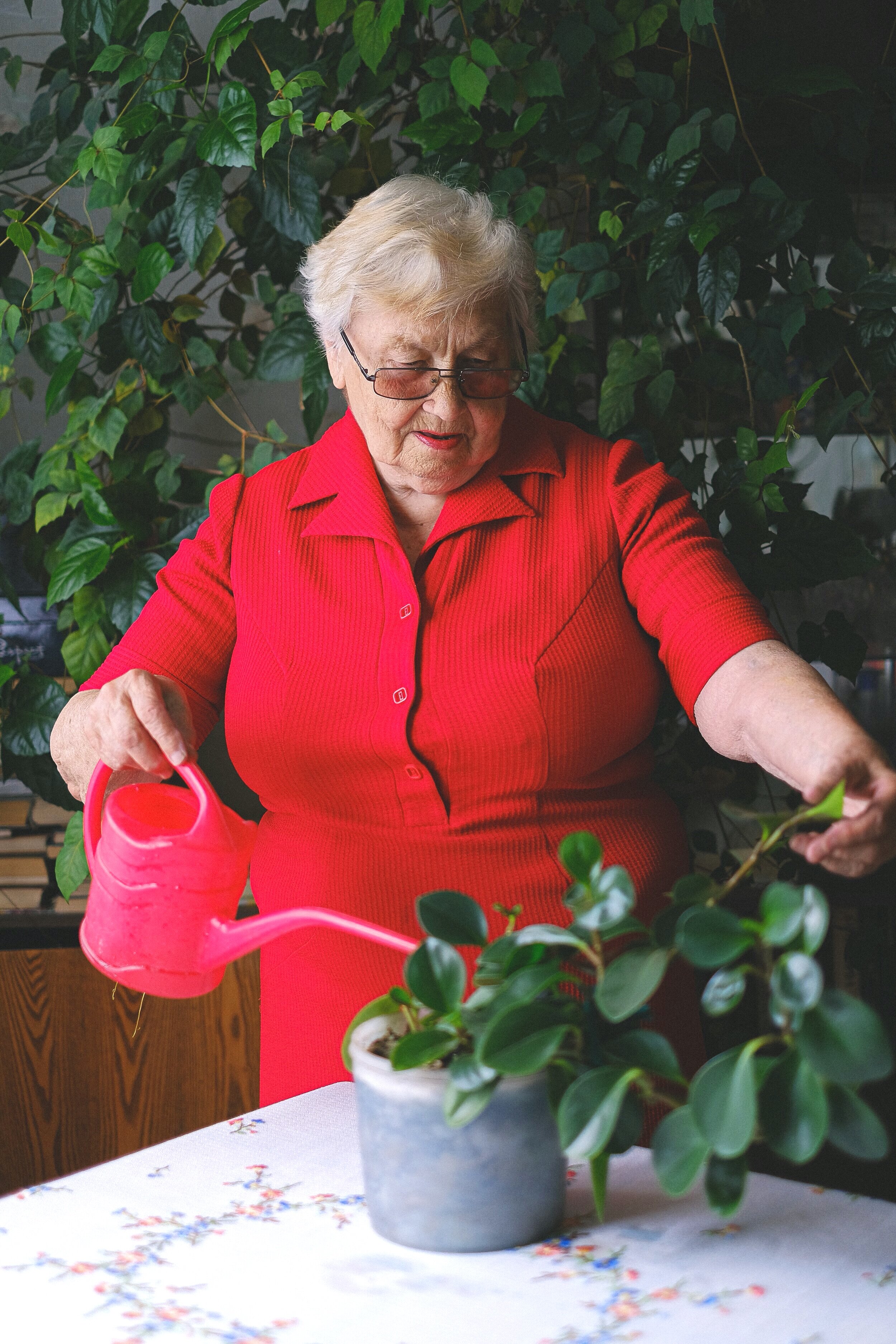5 Health Benefits of Gardening for Seniors
Warmer weather has finally arrived in Canada, and people are ready to get outside after many long months of being indoors, especially during the COVID-19 pandemic. Your aging loved one might be looking for a fun, safe hobby that will allow them to spend time outdoors in a manner that is not overly strenuous. Fortunately, gardening is a great hobby for all ages, and does not have to be given up when the seasons change. Here are five physical and mental health benefits that gardening can have for seniors.
Physical Exercise
As one ages, exercising can prove to be a challenge due to decreased flexibility, energy and stamina, increased body pain, and more. Some exercises, like rock climbing, can even be harmful for seniors and should be avoided, as they foster overexertion. However, gardening is a light exercise that helps seniors maintain or improve their flexibility, mobility, and overall physical health by allowing them to get their blood flowing for a few hours each day. Many nursing homes employ gardening or horticultural therapy to keep residents active and promote healthy lifestyles, as it encourages the use of all motor skills.
Gardening is a lower-intensity exercise that gets your whole body moving, thus improving circulation, and burns approximately 200 to 400 calories an hour. Doing it every day can strengthen muscles, reduce body pain, help to maintain weight, and improve seniors’ immune systems. Keeping physically healthy and thus keeping their immunities up can help aging adults’ bodies ward off diseases more easily. While gardening often requires bending down to tend to plants, pulling at roots, or even lifting heavy tools, pots, or plants, caregivers can help seniors with more difficult botanical tasks and even modify their gardens by adding things such as benches, tables, or hanging baskets to ensure the least amount of harm and facilitate accessibility.
A senior and her family member gardening
2. Mental Exercise
Gardening can also be great mental exercise. To maintain our abilities and functions, we must exercise them daily, which becomes more difficult during the aging process. As the saying goes, “Use it or lose it”. Gardening engages all the senses, thus stimulating the mind and keeping it active. This mental stimulation is why it is an extremely beneficial activity for those with Alzheimer’s or dementia.
Multiple scientific studies have found that gardening decreases the risk of Alzheimer’s and dementia in young and old age, and reduces anxiety, tension, and aggressive behavior in seniors that have already been diagnosed with Alzheimer’s and dementia by simultaneously occupying their minds with this relaxing activity and allowing them to spend time outdoors. While gardening, people are often completely present and fully concentrated on their tasks. Gardening ultimately improves brain functioning, aiding the aging mind through sensory and mental stimulation.
3. Decreased Loneliness
Loneliness is a big problem among seniors, albeit less so with home care as caregivers and even family are often around to give seniors the attention they deserve. Interestingly enough, gardening actually helps combat loneliness by giving seniors live objects for which to tend and care. In this way, plants are almost like pets – they must be maintained and cared for every day, respond to and require constant attention, and gardeners often grow attached to their plants.
Of course, they are lower maintenance than animals, but still require love in the form of sunlight, water, and proper upkeep. Caring for plants can give seniors a sense of control and responsibility that sometimes dwindles while aging, therefore bestowing them with feelings of independence and dignity, increasing their sociability, ultimately reducing their loneliness.
4. Stress and Anxiety Relief
An elderly woman tending to her plants
Another benefit of gardening is that it alleviates stress and anxiety by boosting seniors’ moods. Aging is stressful for a number of reasons, and gardening can help to instill a sense of peace in seniors. While they garden, they listen to the sounds of nature, smell its lovely fragrances, and engage in repetitive yet entertaining routines that stimulate them mentally.
Gardening releases the happy hormones – serotonin and dopamine – due to its relaxing nature and because of sun exposure and retained Vitamin D. Likewise, it decreases the stress hormone cortisol, and lowers blood pressure and the heart rate, putting seniors into a state of bliss and relaxation. The combination of bright colors, physical exercise, and augmented sense of independence and self-esteem provided by gardening greatly diminishes stress and improves their moods.
5. Healthy Food and Diet
After long hours spent tending to your garden, you get to reap the benefits and eat the fruits and vegetables that have been planted and grown to their full potential. A healthy diet is always important, but especially so as one ages; a proper diet is needed to keep our immune systems strong.
Here at Meaningful Living, we prioritize our clients’ health and nutrition, and provide meal preparation services. Caregivers can take your homegrown produce and turn your wonderfully grown fruits and veggies into a delicious home-cooked meal! Our butternut squash soup recipe is one of the many healthy meals our caregivers can make for our clients. Gardening at home also provides extra assurance that the produce is completely organic, natural, and healthy, as the food comes straight from your garden.
A fresh, homegrown salad
Gardening has many positive effects on people of all ages, and can be especially beneficial for seniors. It is evidently not restricted to the warmer seasons, and can even be done inside. It’s never too late to pick up a new, healthy hobby and become a green thumb! For more ideas on hobbies or activities for seniors, check out our article on winter activities for seniors, and on things for seniors to do during self-isolation.




